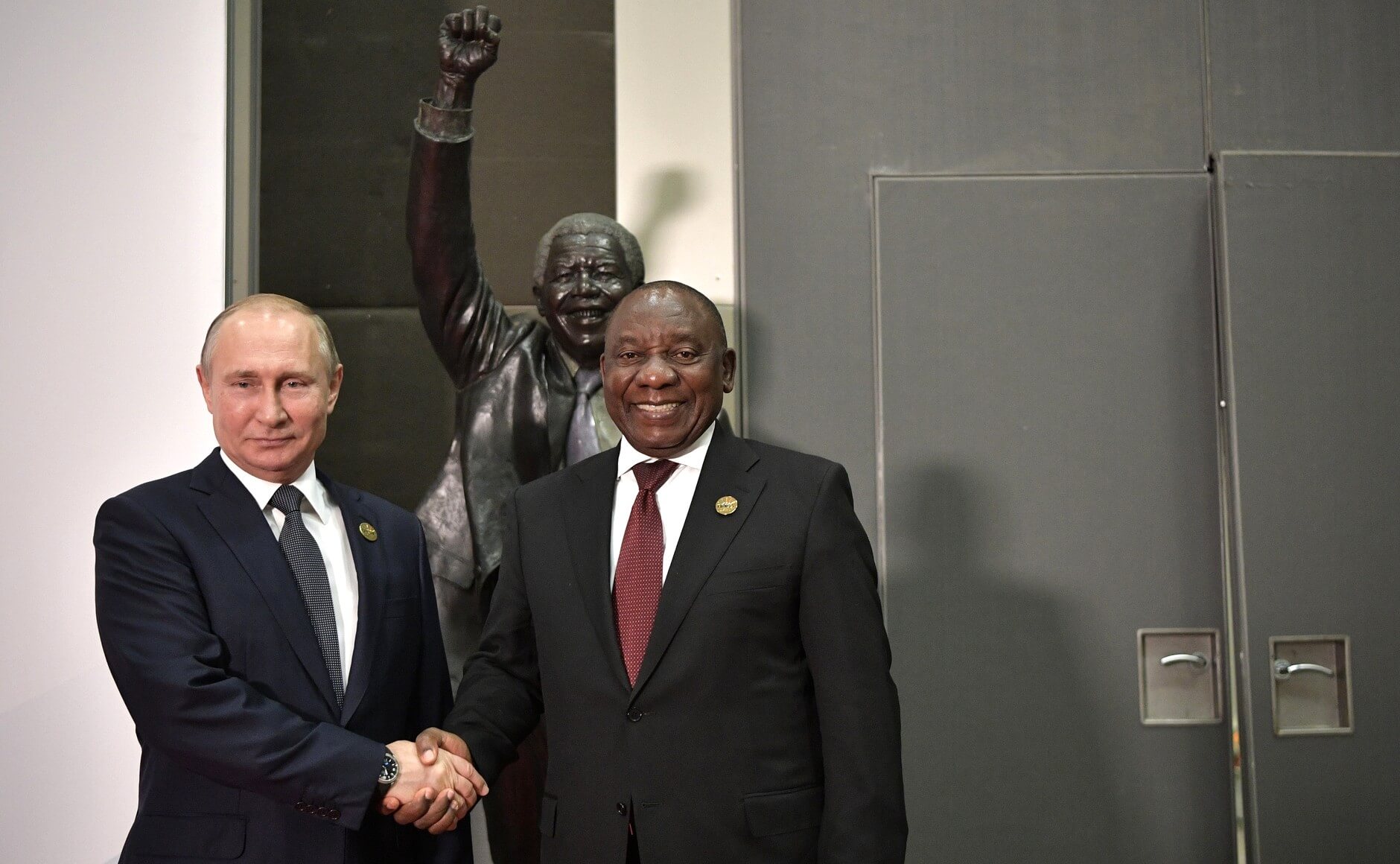Democracy in South Africa will soon have its first experience of forming a coalition government after 30 years of democratic elections and the dominance of the African National Congress (ANC).
After 30 years of being the nation's dominant political force, it will struggle to win a majority in Wednesday's elections and will need to search for allies to form a government.
It will also require the support of others to elect the country's president in parliament within a brief 30-day timeframe.
In many ways, this will be a new experience for the nearly 30 million South African voters. Not only will this be a new experience for them, but also for the continent, where South Africa, as the largest industrialised economy and a country with a tradition of democratic institutions, has traditionally held significant influence.
The desire for change in South Africa is widespread but not yet politically articulated enough to seriously jeopardise the ANC's dominance.
Distrust in democracy
According to surveys, two-thirds of South Africans believe that the country is moving in the wrong direction, and as many as 70% are dissatisfied with the way democracy is functioning in the country.
However, this great dissatisfaction will only partially influence the results of the elections. Hardly anyone gives the ANC a chance of passing the 50% support. The ratings are closer to 40% than the majority of the electorate.
The ANC will retain a dominant role in shaping state policy, but for the first time in its history it will have to face the demands of one or more future coalition partners
This means that the ANC will retain a dominant role in shaping state policy, but for the first time in its history and in the 30 years of the post-apartheid democratic system, it will have to face the demands of one or more future coalition partners.
The second-strongest political force, the opposition Democratic Alliance, with around 20% of support, is a technocratic and economy-oriented party that is not sufficiently oriented towards the majority population, earning it the name "party of white South Africans."
The DA and its leader, John Steenhuisen, did not reject the possibility of a coalition with the ANC, but primarily because they wanted to prevent other smaller, mainly populist opposition parties from joining the government.
Strong populism
The ANC's next potential coalition partner comes from the ranks of the far-left populists from the Economic Freedom Fighters (EFF) party. They stand for industry nationalisation and property expropriation, advocating measures against the white population, and have around 11 percent of the vote.
The ANC's future coalition partner in forming a government and electing the country's president will determine the extent and direction in which a change in the country's political course is possible.
The internal demands primarily concern the solution to the difficult economic and social situation, in particular the fight against crime. In this respect, the ANC has not been particularly successful, as more than half of the population lives in poverty, and corruption and crime are widespread.
Voters "penalised" the ANC by reducing its support in addition to voting abstention
Apathy and a constant decline in voter turnout are the main indicators of these negative trends, which have been ongoing for a long time. In the previous parliamentary elections in 2019, for the first time, the voter turnout dropped below half (49%), which was eight per cent less than five years earlier.
Voters "penalised" the ANC by reducing its support in addition to voting abstention, so Wednesday's elections will confirm these two crisis parameters.
South Africans will not opt for radical political change, ensuring at least a semblance of political stability.
However, one of the minority coalition partners could influence the future government's policies, particularly its foreign policy.
Foreign policy will depend on the coalition structure
If the ANC chooses the liberal DA, the partnership could mark the beginning of a pro-Western shift in South Africa's foreign policy course.
The ANC's traditional orientation towards Russia goes back to the USSR, which supported its struggle for human rights and the overthrow of apartheid. Even under current conditions, South Africa sees Russia as an important political partner rather than an economic one, given that Russia's economic influence across Africa lags well behind that of the US and China in particular.
On the other hand, Russia will look for ways to exacerbate the existing political tensions in South Africa, which could arise from the country's first experiences with a coalition government and thus strengthen its influence.
 Russia will look for ways to exacerbate the existing political tensions in South Africa, which could arise from the country's first experiences with a coalition government - Vladimir Putin with Cyril Ramaphosa
Russia will look for ways to exacerbate the existing political tensions in South Africa, which could arise from the country's first experiences with a coalition government - Vladimir Putin with Cyril Ramaphosa
Russia will undoubtedly have a greater impact than before if the extreme left populists of the EFF become partners of the ANC. Their anti-Western sentiment is even stronger than that of ANC supporters, so a government with this structure would lead to even stronger ties with Russia and China in particular.
Both Russia and China will be satisfied with the political status quo in South Africa, given that it is one of the founding BRICS members, and both see it as an important tool to further their anti-Western policies.
As one of the leading partners in Africa, China has been trying to keep South Africa as one of the main beneficiaries of its loans, given that it was the first African country to join the Belt and Road project.
The guarantee for this would be a government in which the ANC retains a dominant influence with partners that are strongly anti-Western-oriented.